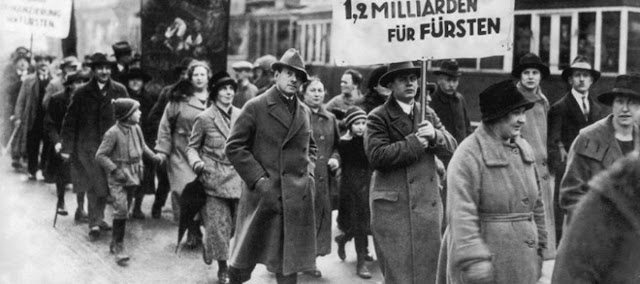The terrible price of austerity

In August 2014, I wrote this post arguing that harsh austerity during the Depression caused Hitler's rise to power. At the time, my argument seemed controversial, at least in Germany. There, it is not the austerity of 1930-32 that is blamed, but the debt-driven hyperinflation of a decade earlier. Germans remain terrified of both inflation and debt to this day. I am certainly not the only person to identify a causative link between austerity and Hitler. Here is Paul Krugman slapping down Eduardo Porter in 2015, for example: Yes, there was a hyperinflation in 1923, which may have helped radicalize German politics. But the proximate factor in Hitler's rise to power was the great deflation of the 1930s, brought on by a disastrous attempt to stay on gold. Disastrously staying on gold might of course have been due to the recent experience of hyperinflation. In 2014, when Bulgaria was unable to pay insured depositors for six months after a bank failure, the central bank ref





